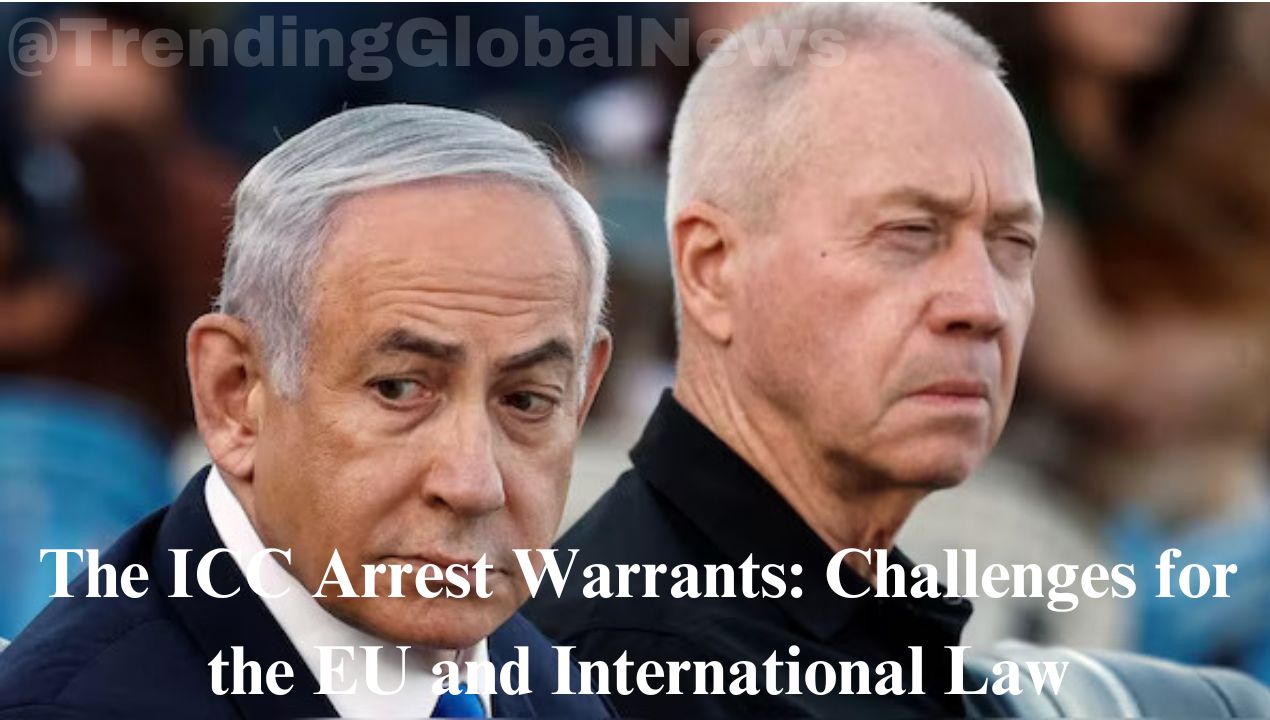The international legal system is facing a significant test following the issuance of ICC arrest warrants against three prominent leaders: Hamas leader Ibrahim Al-Masri, Israeli Prime Minister Benjamin Netanyahu, and former Israeli Defense Minister Yoav Gallant. This unprecedented move by the ICC on Thursday charges the individuals with alleged crimes against humanity in the context of the ongoing Israel-Hamas conflict.

The situation has ignited debates within the European Union, as EU member states grapple with their obligations under the Rome Statute, which established the ICC. The question now arises: will EU countries comply with the ICC arrest warrants, or will political considerations overshadow their legal commitments?
The ICC and the Rome Statute
The Rome Statute, ratified by all EU member states, serves as the legal framework for the ICC. Under this statute, countries are obligated to cooperate with the court, including executing arrest warrants. However, the recent ICC decision has revealed deep divisions within the EU and the international community.
While some EU nations, such as the UK, have expressed their commitment to fulfilling their legal obligations, others, like Hungary, have taken a more defiant stance. Hungarian Prime Minister Viktor Orban has invited Netanyahu to visit Hungary, assuring him that there would be no risks associated with the ICC arrest warrant. This divergence highlights the complexities of balancing international law with political alliances.
Also Read: Who Is the Richest Person in the World? Tesla’s Share became Rocket on Friday
EU’s Response to the ICC Warrants
The head of EU foreign policy emphasized on Saturday that EU nations cannot arbitrarily decide whether to enforce ICC arrest warrants. This statement underscores the importance of a unified approach to uphold international law.
Despite this, the situation remains contentious. For instance, the UK’s ICC Act 2001 outlines specific procedures for handling ICC arrest warrants, stating that a government minister must transmit the ICC’s request to the appropriate court. However, UK officials admitted that the statute has never been invoked, leaving uncertainties about how the legal process would unfold if Netanyahu or another indicted individual were to visit the country.
When questioned, UK Prime Minister Keir Starmer’s spokesperson declined to comment on hypothetical scenarios but reiterated the UK’s commitment to complying with its domestic and international legal obligations.
International Reactions
The ICC’s decision has drawn mixed reactions globally:
- Israel: The Israeli government condemned the ICC’s action as antisemitic, highlighting the longstanding tensions between Israel and international legal bodies.
- United States: The U.S. rejected the ICC’s ruling, aligning itself with Israel and questioning the court’s jurisdiction and impartiality.
- EU Nations: While some EU countries have voiced support for the ICC, others, like Hungary, have opted for political pragmatism, prioritizing their relationships with Israel.
The Broader Implications
The ICC arrest warrants stem from allegations of war crimes and crimes against humanity linked to the ongoing Israel-Hamas conflict. The situation escalated following Hamas’s October 7, 2023, attack, which sparked a fierce and ongoing conflict in Gaza.
While the ICC’s actions aim to ensure accountability, they also risk deepening divisions among nations and complicating diplomatic relations. For the EU, this case poses a significant challenge: how to balance its legal commitments under the Rome Statute with the political realities of the Middle East conflict.
Legal and Political Challenges
The ICC’s move has spotlighted the limitations of international law enforcement. Without a dedicated global enforcement mechanism, the ICC relies on member states to act on its warrants. However, as seen in this case, political considerations often influence whether countries fulfill their obligations.
The Hungarian Prime Minister’s assurances to Netanyahu and the UK’s cautious stance illustrate the complexities of enforcing ICC rulings, particularly when dealing with high-profile political figures.
The ICC arrest warrants for Benjamin Netanyahu, Yoav Gallant, and Ibrahim Al-Masri have opened a new chapter in the intersection of international law and politics. For the EU, this situation underscores the need for unity and adherence to the principles of the Rome Statute, even in the face of political pressures.
The coming weeks will reveal whether EU nations prioritize their legal commitments or succumb to political considerations. Regardless of the outcome, the ICC’s actions serve as a reminder of the importance of accountability in addressing alleged crimes against humanity and war crimes.
By navigating these complex challenges, the EU has an opportunity to reaffirm its commitment to international law while addressing the broader implications of its actions on the global stage.
